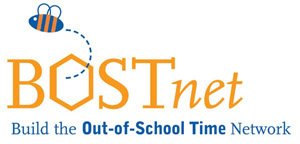
Rather than Labor Day, "back to school" sales mark the unofficial end of summer. The two lazy weeks of August are spent with stores pulling out the unsold flip-flops and towels and filling them with child-friendly office supplies, organizers, and sundry trinkets of learning. College age people disappear from the general population, from keeping watch at cash registers and serving at local restaurants and amass at designated "college towns" where they won't be seen until next summer. Teachers vanish into their rooms with cans of paint and their own brushes if in poor neighborhoods to renovate their classrooms and to stock shelves with new book orders in well to do areas. After-School also is ready - that is, scrambling to see if the vouchers are approved, the space permit asked for in June has been signed, whether there is staff, if the staff hired two weeks ago will show up to work on the first day or "call in" and handle a full mail bin whether paper or electronic.
Add to this ritual, the new uncertainty. There are many crises in the world, and rather than these being far-off conflicts, famines, and troubles, these worries from a world away are all very close to home in our newspapers, on television, and across the internet. The economy is foremost in the minds of many Americans as they send their children to school. A mother mused to me over the long weekend, "We thought we knew what kind of world Fay was born into. But that world of thirteen months ago is gone and we're not sure what it has been replaced with."
The gloom-and-doom crowd are latching on to this uncertainty and compiling long lists of the erosion of rights as well as touting an end of the middle class. They point to bus routes canceled, further cut back on activities - but this time to pay for heating and lights rather than lowering taxes, and more students in greater debt for higher education. In some areas, this uncertainty is not new. In some areas the lack of resources didn't need an economy in recession - the gap was already there.
After School has always worked with little money, few resources, and an often pushed aside agenda of youth development when many districts see this time as a further addition to the school day of 21st century tests and necessary preparation for those tests. Like Chicago, where years of inequality is coming to a head, or New York City where year after year the state did not provide those schools with the funding they were due, Boston perhaps will also see in these uncertain times a good opportunity to examine the quality of resources for all children and see that while some children are having to do more with less now, many children have always lived in that uncertainty.
After School programs may find it harder to survive in the coming months. They may, however, be the programs that can be an example to others as to how to make the most out of the least. Like many people, we may have to just wait a few months and see.




No comments:
Post a Comment